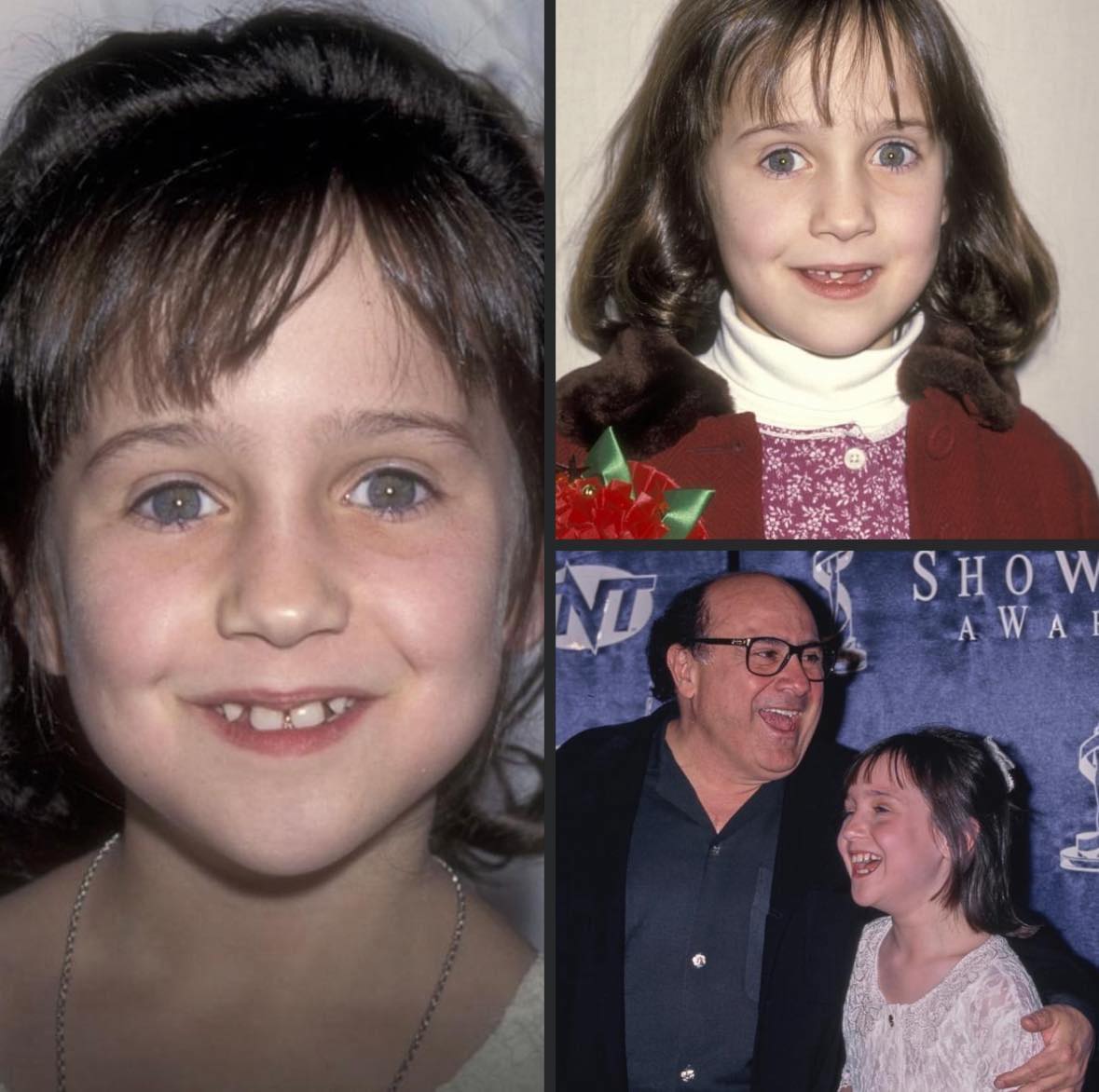During the 1990s, Mara Wilson captivated audiences with her charm and talent, quickly becoming one of the most recognizable child stars of her era. Known for her roles in iconic family films like Mrs. Doubtfire and Miracle on 34th Street, Mara’s star power seemed unstoppable. However, as she grew older, the very industry that celebrated her youthful appeal turned its back on her. Now 37, Mara reflects on the challenges she faced and how she found a new path outside Hollywood.

“Hollywood was burned out on me,” Mara candidly shares. “If you’re not cute anymore, if you’re not beautiful, then you’re worthless.” Her words reflect a stark truth about the entertainment industry’s obsession with appearance, which ultimately led to her departure from the big screen.
A Bright Beginning
Mara’s journey to stardom began at just five years old when she starred as Robin Williams’ youngest daughter in the beloved comedy Mrs. Doubtfire. Her performance in the 1993 film touched millions of hearts, earning her widespread acclaim. Before landing the role, Mara had appeared in commercials, but this project catapulted her into the limelight.
“My parents were proud of me, but they kept me grounded,” she recalls. “If I ever said something like, ‘I’m the greatest!’ my mother would remind me, ‘You’re just an actor. You’re just a kid.’” This sense of humility became a guiding force in Mara’s life, even as her fame soared.
The following year, she starred in the 1994 remake of Miracle on 34th Street, playing Susan Walker—a role originally portrayed by Natalie Wood in 1947. Mara charmed audiences once again with her heartfelt performance, further solidifying her reputation as a talented young actress. Reflecting on her audition, she shared, “I performed my lines for the production team and mentioned that I didn’t think Santa Claus was real. But I did believe in the tooth fairy and had named mine after Sally Field.”
Challenges and Loss
In 1996, Mara took on her most iconic role as the precocious and magical Matilda in the film adaptation of Roald Dahl’s Matilda. Starring alongside Danny DeVito and Rhea Perlman, she delivered a performance that remains beloved by fans to this day. However, that same year brought immense personal tragedy when her mother, Suzie, lost her battle with breast cancer.
“I wasn’t sure about my identity anymore,” Mara says. “There was the person I was before, and then there was the person I became after. My mom’s absence felt like this huge shadow in my life.” The grief weighed heavily on Mara, and despite her professional success, she found herself struggling with deep unhappiness. “When I became very famous, I actually felt the most unhappy,” she admits.
At age 11, Mara reluctantly took on her final major role in the 2000 fantasy film Thomas and the Magic Railroad. Reflecting on the experience, she says, “The characters were too young. At 11, I had a visceral reaction to the script—ugh, I thought. How cute.”
The End of Acting
While Mara’s decision to step away from Hollywood was partially her own, the industry played a significant role in pushing her out. As she entered her teenage years, she began to experience the harsh reality of typecasting and the entertainment industry’s fixation on physical appearance.
“At 13, no one had called me cute or mentioned the way I looked in years, at least not in a positive way,” she recalls. The transition from child star to adolescence left her feeling alienated and undervalued. “I used to think that in Hollywood, if you’re not pretty or attractive, then you don’t matter at all. I connected that idea to the end of my career.”
Despite growing weary of acting, the rejection still stung. “Even though I was kind of tired of it and Hollywood seemed tired of me too, it still hurts to be turned away,” she confesses.
A New Chapter as a Writer
Today, Mara has embraced a quieter, yet fulfilling life as a writer. In 2016, she published her memoir, Where Am I Now? True Stories of Girlhood and Accidental Fame, offering an intimate look at her journey from child stardom to adulthood. Through a collection of essays, she explores her experiences in Hollywood, the pressures of fame, and her eventual decision to leave the industry behind.
She followed up with another memoir, Good Girls Don’t, which delves deeper into her life as a child actor and her struggles to meet societal expectations. Reflecting on her Hollywood career, Mara wrote, “Being cute only brought me sadness. I always believed that I would be the one to stop acting, not the other way around.”
Legacy and Reflection
Mara Wilson’s story is a poignant reminder of the challenges child stars face in an industry that often prioritizes appearance over talent. While her acting career may have ended prematurely, she has found new purpose in writing and advocacy. Her journey highlights the importance of resilience, self-discovery, and redefining success on one’s own terms.
What are your thoughts on Mara Wilson’s story? Share your perspective and pass this along to others—it’s a story that sparks important conversations about Hollywood, identity, and the value of self-worth.


